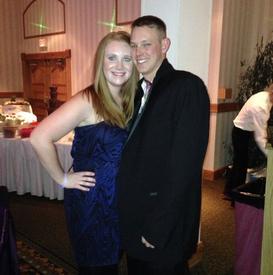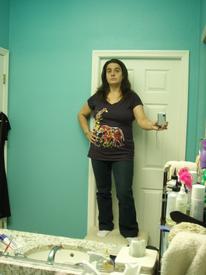Cooking with Oils and Marinades & Logging it

Doberdawn
Posts: 733 Member
I want to account for all my calories and I do it as accurately as possible. I even count breath mints. I don't want a generic, well count everything and over estimate - it's safer that way. That's like driving 45 mph on the highway because you don't know if the speed limit is 55, 65 or 70 mph. It doesn't make sense and it may even cause an accident.
So, I want to talk about what is MOST accurate and WHY. The other day, I made fried chicken (not a regular thing, but the only way I get to eat it is if I make it because it has to be gluten free). I measured the oil I put in the pot, cooked all the chicken and then I measured the oil that remained in the pan. I put 1.5 cups of oil in. There was 1.375 cups remaining. So, it would seem for putting it into the recipe calculator to get an accurate assessment of the calories per serving, I should just put in 1/8th of a cup, not the 1.5 cups I started with, right? Is there a flaw in my reasoning or thinking? How do you account for it?
Same thing with marinades. If I soak meat in a marinade, I measure the amount I put in the bag and I measure what remains in the bag when I pull the meat out. I've only been entering the net amount used. Is there a reason to use a larger amount that I don't know of? If yes, what and why?
So, I want to talk about what is MOST accurate and WHY. The other day, I made fried chicken (not a regular thing, but the only way I get to eat it is if I make it because it has to be gluten free). I measured the oil I put in the pot, cooked all the chicken and then I measured the oil that remained in the pan. I put 1.5 cups of oil in. There was 1.375 cups remaining. So, it would seem for putting it into the recipe calculator to get an accurate assessment of the calories per serving, I should just put in 1/8th of a cup, not the 1.5 cups I started with, right? Is there a flaw in my reasoning or thinking? How do you account for it?
Same thing with marinades. If I soak meat in a marinade, I measure the amount I put in the bag and I measure what remains in the bag when I pull the meat out. I've only been entering the net amount used. Is there a reason to use a larger amount that I don't know of? If yes, what and why?
0
Replies
-
I don't cook with oil like that, I bake or use a 1 cal spray so can't comment on that but if I marinade I just count everything I have used even what gets thrown at the end.
Those slight 'over-estimations' you talk about make up for the slight under-estimations you will inevitably make elsewhere IMO.0 -
The way you're measuring for the oil you fried in and the marinade seems sensible to me. I'm not an expert, though.0
-
The way you're measuring for the oil you fried in and the marinade seems sensible to me. I'm not an expert, though.
Ditto.0 -
Your approach seems sound.0
-
Sure, that will work.0
-
I hardly ever count olive oil, marinades, etc...if you count every little thing, you drive yourself crazy and will stop logging. I mean, you cook with like 1tbsp of olive oil, not a cup...0
-
Yeah, but 1tbsp of olive oil is 120 calories. It's not trivial.I hardly ever count olive oil, marinades, etc...if you count every little thing, you drive yourself crazy and will stop logging. I mean, you cook with like 1tbsp of olive oil, not a cup...0 -
I count it all in my recipes, it all adds up. Nice Message.
 0
0 -
I count it all in my recipes, it all adds up. Nice Message.

Yes, but *how* do you count it? If you included all 1.5 cups of oil I used to fry the chicken even though only 1/8 of a cup was absorbed by the 6 pieces of chicken I made, wouldn't you be seriously over estimating your fat and calories? I mean, there's like 120 calories and 9 grams of fat in 1 tbsp. There are 2 tbsp in 1/8 of a cup.... there would be a TON in 1.5 cups.0 -
I would count it the same way. When I do small amounts of marinades (one or two tablespoons) I just add the total to the recipe.0
-
I count it all in my recipes, it all adds up. Nice Message.

Yes, but *how* do you count it? If you included all 1.5 cups of oil I used to fry the chicken even though only 1/8 of a cup was absorbed by the 6 pieces of chicken I made, wouldn't you be seriously over estimating your fat and calories? I mean, there's like 120 calories and 9 grams of fat in 1 tbsp. There are 2 tbsp in 1/8 of a cup.... there would be a TON in 1.5 cups.
Use the 1/8th of a cup. Obviously, you didn't eat the remaining cup and 3/8ths...why would you count it? Divide the 1/8cup evenly between the six pieces.
If you want to get really nitpicky, that chicken excretes liquid while being cooked, so you probably got more than 1/8C of the oil in the cooked chicken and breading ...the chicken will have excreted water and some fat itself. That's but one more reason to not eat deep fried food - it's not loggable!!
.0 -
This is some information I found. It looks like it doesn't absorb that much. The USDA apparently believe a battered fried chicken leg is at 228 calories while roasted is at 195 calories - the difference then is about 33 calories between the two. It was an interesting read so yes - I do believe we are WAY overestimating the calories after frying. Apparently, the article states its the batter that usually raises the calories, not the oil. Weird eh?
Monica
P.S. The source is the stuff in this box. Interesting article...apparently so long as you remove it prior to the sizzling sounds...that's air escaping which means it absorbs very little per this website.http://www.livestrong.com/article/504208-how-many-calories-does-frying-add/
"In a 2001 study, researchers there analyzed how much fat foods absorb when they're fried. Fried potatoes absorb 2.55 g of fat. Battered fried fish absorbs 4.33 g of fat vs. 7.61 g when breaded. Battered fried chicken absorbs 0.19 g of fat vs. breaded fried chicken, which absorbs 5.8 g of fat."
"The U.S. Department of Agriculture has a database that provides nutrition information on thousands of different foods, including different methods of preparation. Estimating calorie content in a fried food vs. the oven-baked version is as easy as typing in the item. A 3 oz. battered fried chicken leg has 228 calories. A 3 oz. roasted chicken leg with skin on has 195 calories. A skinless leg has 159 calories. A large baked potato, at 299 g, has 278 calories vs. fried potatoes, which, at 312 g, contain 826 calories."0 -
If you want to get really nitpicky, that chicken excretes liquid while being cooked, so you probably got more than 1/8C of the oil in the cooked chicken and breading ...the chicken will have excreted water and some fat itself. That's but one more reason to not eat deep fried food - it's not loggable!!
You see, it was something like this that had me wondering, but not knowing if there was a better way to measure. I know meats get smaller when cooked... oh well. I guess it's the best I've got unless someone has a calculation for that.
You are right, normally I don't eat deep fried foods... but sometimes... every once in a big while... ya just gotta! <g>0 -
If you want to get really nitpicky, that chicken excretes liquid while being cooked, so you probably got more than 1/8C of the oil in the cooked chicken and breading ...the chicken will have excreted water and some fat itself. That's but one more reason to not eat deep fried food - it's not loggable!!
You see, it was something like this that had me wondering, but not knowing if there was a better way to measure. I know meats get smaller when cooked... oh well. I guess it's the best I've got unless someone has a calculation for that.
You are right, normally I don't eat deep fried foods... but sometimes... every once in a big while... ya just gotta! <g>
he heh. I eat fried foods a couple times a week. And I have no idea what the calorie counts are. Some things are better left unknown. :laugh:0 -
The moisture being expelled from the Chicken while frying also helps to prevent excessive amounts of oil being absorbed. It's important to maintain proper temperature while frying.0
This discussion has been closed.
Categories
- All Categories
- 1.4M Health, Wellness and Goals
- 398.3K Introduce Yourself
- 44.7K Getting Started
- 261K Health and Weight Loss
- 176.4K Food and Nutrition
- 47.7K Recipes
- 233K Fitness and Exercise
- 462 Sleep, Mindfulness and Overall Wellness
- 6.5K Goal: Maintaining Weight
- 8.7K Goal: Gaining Weight and Body Building
- 153.5K Motivation and Support
- 8.4K Challenges
- 1.4K Debate Club
- 96.5K Chit-Chat
- 2.6K Fun and Games
- 4.7K MyFitnessPal Information
- 17 News and Announcements
- 21 MyFitnessPal Academy
- 1.5K Feature Suggestions and Ideas
- 3.2K MyFitnessPal Tech Support Questions











